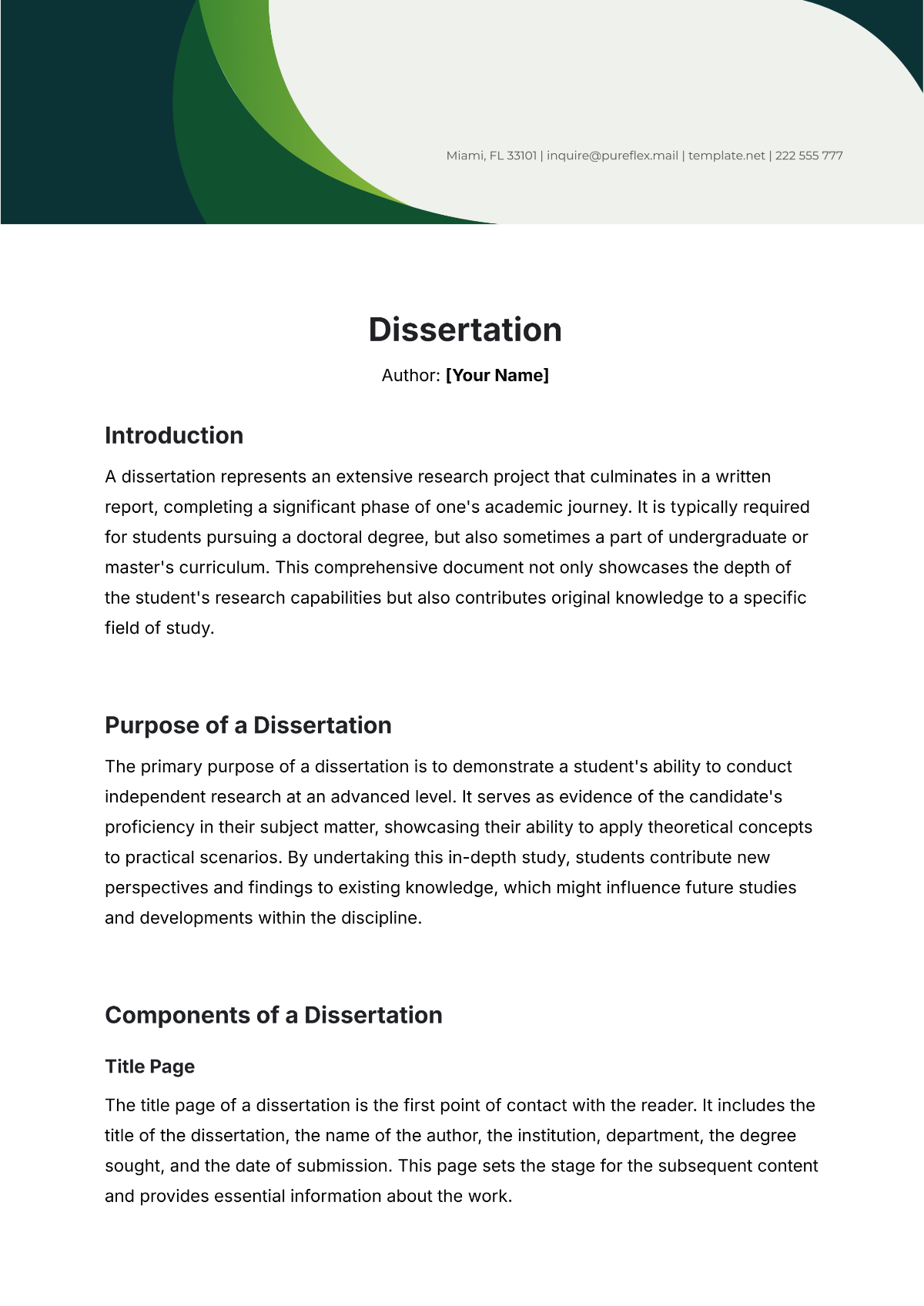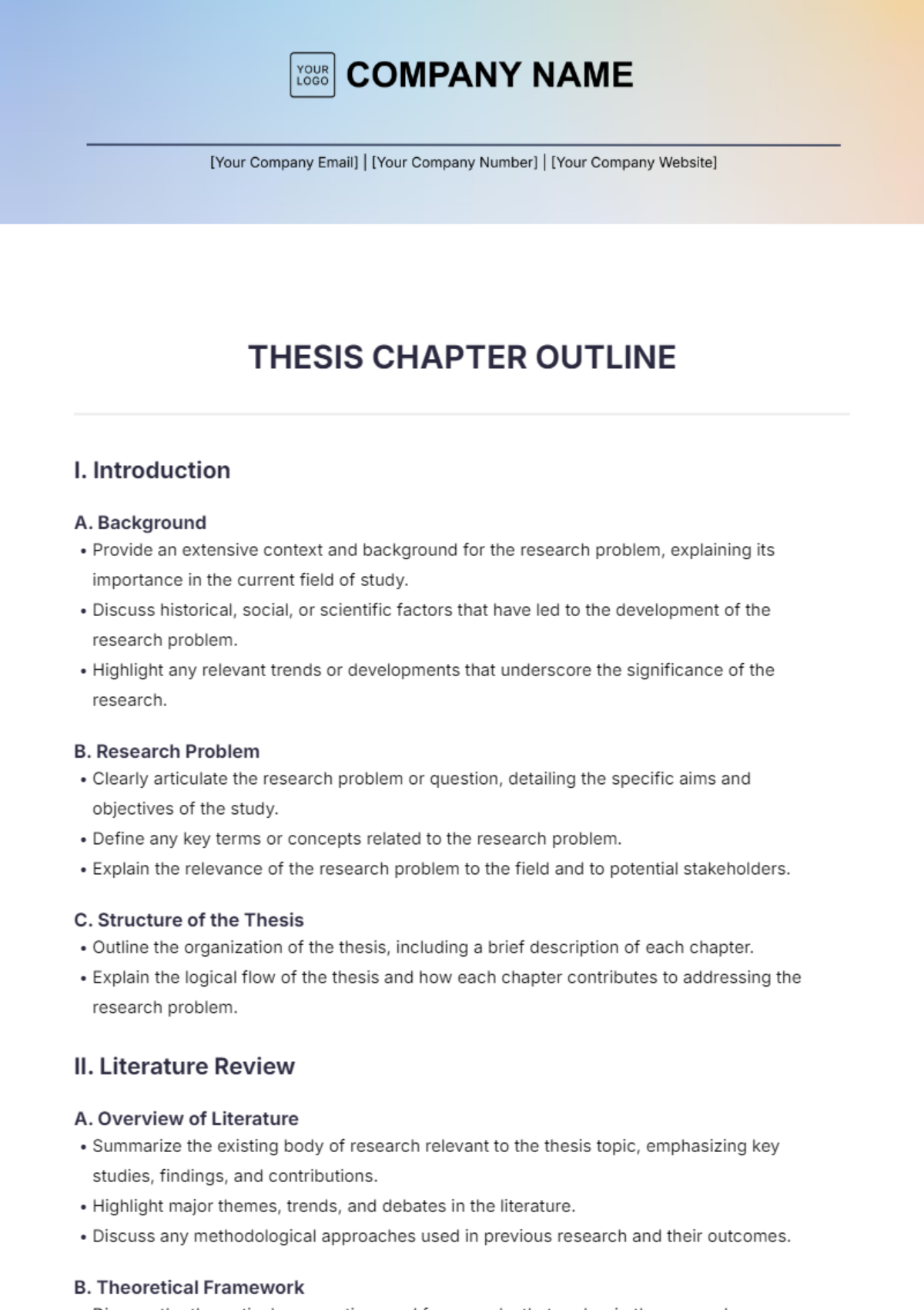Free PUP Thesis Template
PUP Thesis
Prepared by: [YOUR NAME]
Email: [YOUR EMAIL]
I. Introduction
This thesis examines the effectiveness of digital marketing strategies for small businesses, with a focus on the challenges and opportunities they face in the current digital landscape. By analyzing various approaches, the research aims to provide actionable insights for small business owners to optimize their digital marketing efforts.
II. Background and Problem Statement
Small businesses often struggle with limited resources, making it difficult to compete with larger corporations in the digital marketplace. Despite this, many are embracing digital marketing strategies but face challenges such as resource allocation, customer targeting, and maintaining engagement. The problem addressed in this thesis is how small businesses can leverage available digital marketing tools to maximize growth and customer engagement.
III. Research Objectives
The primary objectives of this research are:
To assess the digital marketing strategies currently employed by small businesses.
To identify the key factors contributing to the success or failure of these strategies.
To offer recommendations for optimizing digital marketing efforts, tailored to small business needs.
IV. Methodology
This research uses a qualitative approach, utilizing interviews with small business owners and surveys of their target customers. The data collected will be analyzed to identify common trends and practices, providing insights into the effectiveness of different digital marketing tactics.
Table 1: Survey Participants
Participant ID | Business Type | Digital Platform Used | Marketing Budget (in USD) | Year Established |
|---|---|---|---|---|
001 | Coffee Shop | Facebook, Instagram | $1,200 | 2020 |
002 | Online Retailer | Google Ads, Twitter | $5,000 | 2018 |
003 | Photography Studio | Instagram, Pinterest | $2,500 | 2022 |
004 | Local Gym | Facebook, YouTube | $3,000 | 2019 |
V. Key Findings
The research reveals that small businesses which strategically target specific customer demographics through platforms like Facebook and Instagram tend to see higher engagement rates. However, challenges such as fluctuating budgets and shifting algorithms are commonly reported. Many businesses also lack clear strategies for measuring the effectiveness of their campaigns, making it difficult to adjust and improve efforts over time.
VI. Discussion
The success of digital marketing for small businesses often depends on the personalization of content and consistent interaction with potential customers. Small businesses that use a combination of organic and paid advertising have seen the most significant return on investment. However, those that rely solely on social media platforms without a comprehensive strategy tend to struggle with customer retention and brand recognition.
VII. Recommendations
Based on the findings, the following recommendations are proposed for small businesses to improve their digital marketing strategies:
Invest in targeted social media ads: Allocate budget toward platforms where their target demographic is most active.
Develop a content calendar: Maintain consistent and engaging content that resonates with their audience.
Track and measure results: Use analytics tools to assess the performance of campaigns and adjust strategies as needed.
VIII. Conclusion
In conclusion, small businesses can greatly benefit from understanding and implementing effective digital marketing strategies. By focusing on personalized customer engagement, utilizing multiple digital channels, and consistently evaluating marketing efforts, small businesses can thrive in an increasingly digital world.







































